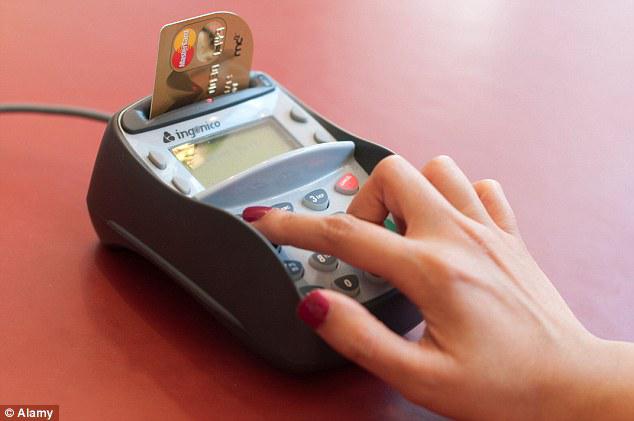
Researchers say the system of paying to park using your mobile phone, follow the trend of using passes instead of cash on buses, could be the latest sign that Britain is moving towards a cashless system.
Brighton and Hove Council has announced it will abandon half of its coin operated parking meters in favor of people using their phones to pay for their car parking. This is already popular on buses across the country where cash is no longer accepted, and particularly in London, as well as in a number of work canteens that operate card-only systems of payment. The popularity of non-cash payments has also been seen on the streets with an unemployed man armed with a card machine so people can give him money using their cards.
The growth in online shopping and the rise of new, innovative ways to pay have led to consumers turning to a growing range of payment options in recent years. About three-quarters of Britons now shop online, compared with just over half in 2008, according to figures released last year.
Contactless payments have also had a significant boost in the last year, with £2.32 billion spent using the method in 2014. This was more than three times the total value of contactless spending the previous year.
Richard Koch, head of policy at the UK Cards Association, said: “It’s the rise in convenient contactless payments for lower sums and smaller transactions online which in particular are changing the way we choose to pay.”
However the Payments Council said the popularity of cashless payments do not mean the end of Britain's monetary system. It predicts that by 2023 we will still be making 12.9 billion transactions using coins and notes. This will be significantly lower than the 27.5 billion transactions without cash that are expected.
Mark Bowerman, a spokesman for the Payments Council, said cash is still a vital payment method for many consumers, with students, people who need to tightly control their budgets, older people and people with a disability being particularly high users of cash.
本时文内容由奇速英语国际教育研究院原创编写,禁止复制和任何商业用途,版权所有,侵权必究!
1.What is the latest sign indicating Britain is moving to a cashless system?
A Work canteens operate card-only machines.
B Online shopping has a significant increase.
C A homeless man carries a card machine with him.
D People start using phones to pay for car parking.
解析:选D。D 细节理解题。根据文章第1段…paying to park using your mobile phone…the latest sign that Britain is moving towards a cashless system可知,使用手机支付停车费是英国正逐步走向无现金社会的一个最新标志。
2.Why does the man take a card machine with him?
A People can give him money using their cards.
B He can buy things in a way of no-cash payments.
C It is popular to do cashless payments in Britain.
D He doesn’t accept coins that are offered to him.
解析:选A。A 细节理解题。根据文章第2段unemployed manarmed with...可知,他失业流浪,无家可归,他接受捐赠或施舍是通过转账方式进行的,他携带的刷卡机就是方便人们给他捐赠。
3.What can we infer from the passage?
A More and more people prefer payments in cashless patterns.
B Consumers have more choices for payments other than in cash.
C The majority of Britons find it convenient to shop online.
D Only smaller transactions are conducted in cashless manners.
解析:选B。B 推理判断题。根据文章第3段…led to consumers turning to a growing range of payment options in recent years可以判断,除现金之外,人们还有很多支付选择。
4.What do we know from the prediction by the Payment Council?
A The monetary system will come to an end by 2030.
B Transactions will go more in cash than without cash.
C Coins and notes will still play their role in the future.
D People expect all transactions to be done without cash.
解析:选C。C 推理判断题。根据文章第6段by 2023 we will still be making 12.9 billion transactions using coins and notes可知,到2023年,使用硬币或现钞的交易额仍然达到接近130亿英镑,由此判断,现金仍然在发挥着它的作用。
5.What is implied in the last paragraph?
A People with disability are unable to operate on card machines.
B Students often can’t control their spending when they pay with cards.
C Special groups of people still rely on cash to make their payments.
D Making payments in cash can save these people some money.
解析:选B。B 推理判断题。根据文章第7段with students, people who need to tightly control their budgets可知,学生属于需要控制预算的人群—他们不适合使用银行卡支付,因为无现金支付会造成他们的过度消费。